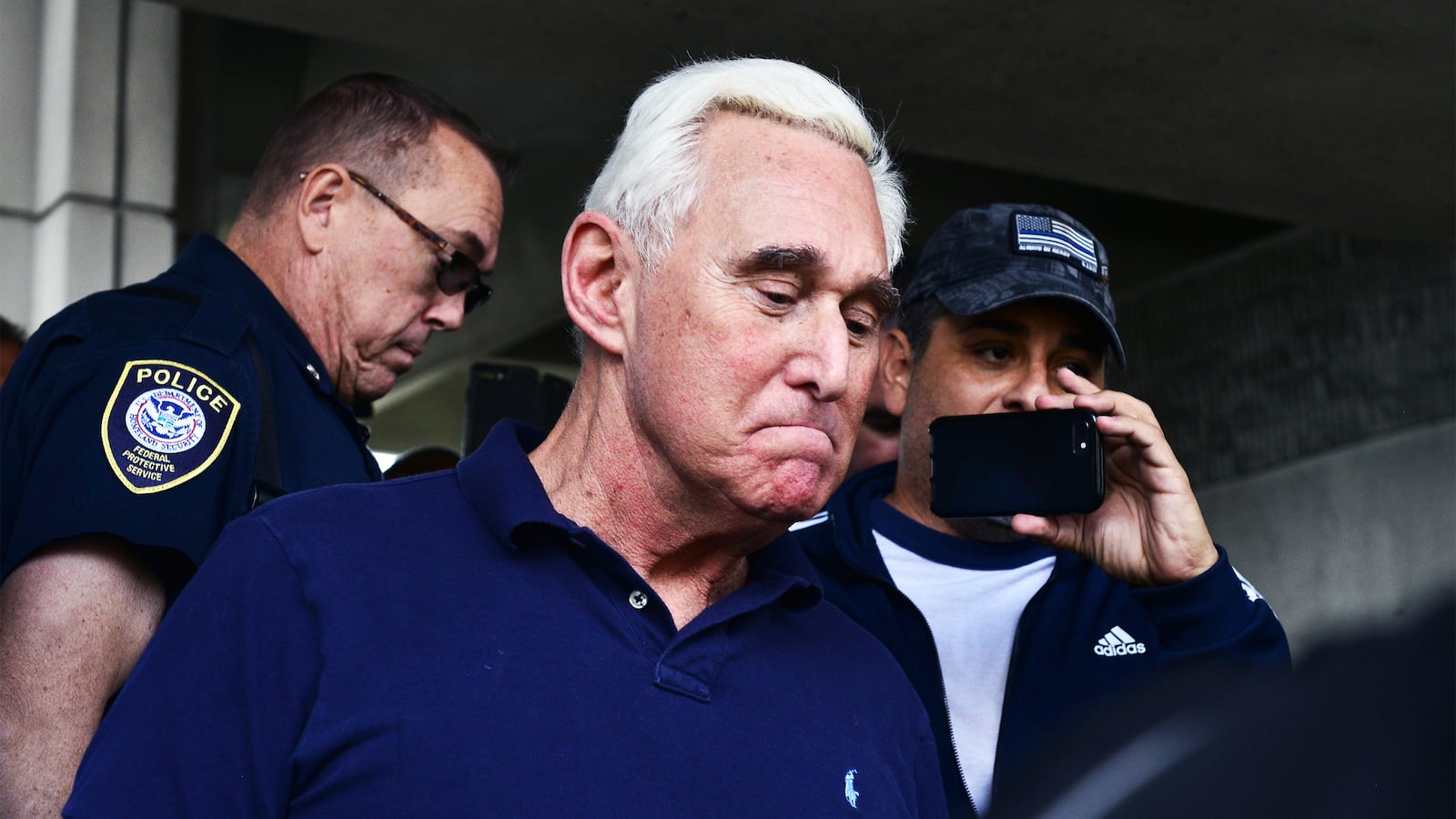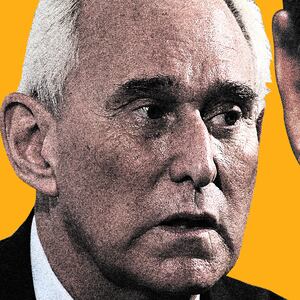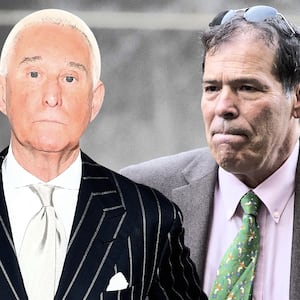Roger Stone, President Trump’s former campaign adviser, and long-time friend and confidant, was indicted on Friday for obstruction of justice and witness-tampering based on lies he told to Congress and his efforts to coerce another witness into lying. Since the indictment, there has been much speculation about what it means for the special counsel investigation, ranging from “this definitely proves there is no grand Trump campaign-Russia conspiracy” to “see, the facts for conspiracy are absolutely there—Mueller just hasn’t charged them yet.”
Acting Attorney General Matthew Whitaker seemed to side with the former, saying Monday—in a completely inappropriate public statement—that he “thinks” the investigation is “close to being completed.”
Confession: I don’t have the answer but I know from looking at Stone’s indictment that neither of those extremes can be right. The truth of where we are is—as so often in this investigation—still unclear. But there is much about this indictment and other public aspects of the Mueller probe that I do believe support the conclusion that the investigation into whether or not there was a criminal conspiracy is not yet over.
First, an aside: I am talking here about criminal conspiracy, such as conspiracy to violate the campaign finance laws by soliciting or accepting a donation from a foreign entity (Russia or WikiLeaks); and/or conspiracy to defraud the United States by interfering in our free and fair elections; or participation in a computer hacking scheme. Even if no one in the Trump orbit is charged with engaging in any of these (or other) criminal acts, this does not mean there shouldn’t be serious consequences for their conduct. The standard for a president (and his campaign and inner circle) shouldn’t be, “is there a criminal statute that applies to their conduct?”
Back to where we are in the special counsel’s investigation. Three things about Stone’s indictment stand out to me. First, Mueller did not need to put this much detail in an indictment for obstruction of justice. He could have made this a non-speaking indictment with bare bones charges. He could have made it a speaking indictment that focused only on Stone’s interactions with Persons 1 and 2 and minimal detail about the Trump campaign involvement. But, Mueller didn’t do that. He is clearly trying to tell us something—we just don’t know what exactly, yet.
Second, while Stone is not charged with conspiring with WikiLeaks or Russia to illegally disrupt the 2016 election, the indictment details a lot of interactions between Stone and intermediaries in which Stone is at the least very diligently, even desperately, trying to find out how damaging the trove of hacked emails in its possession were and when they would be released. And Mueller pointedly states in Paragraph 2 of the indictment, right up front, that the Democratic National Committee “publicly” announced that it had been hacked by Russia. Did Stone know the emails Wikileaks had and he was eagerly seeking were hacked by a foreign adversary? Of course he did—everyone did. Can Mueller prove that in court beyond a reasonable doubt? We don’t know yet.
Third, Stone’s indictment makes clear that at least some people in the Trump campaign were also eager to find out what WikiLeaks had and how it could be weaponized. Paragraph 12, arguably the most damaging line in the indictment in terms of Trump himself, states that “a senior Trump Campaign official was directed to contact Stone about what other damaging information [Wikileaks] had regarding the Clinton Campaign.” And, “Stone thereafter told the Trump Campaign about potential future releases of damaging material by [WikiLeaks].”
Are these acts, standing alone, enough to implicate the “Campaign official” or the person who did the “directing” in a criminal conspiracy with Stone and Wikileaks and the Russians? Not standing alone. Is there more outside the four corners of this indictment that could fill this gap, like conversations that occurred during the infamous Trump Tower meeting or other conversations to which we are not yet privy? We don’t know yet.
So, there are many unanswered questions. To those who look at the charges in the Stone indictment and ask, “if Mueller could have charged a criminal conspiracy against Stone wouldn’t he have done it now,” I say, maybe, but there are absolutely good, strategic reasons why he might not.
The same day that Stone was arrested, the FBI executed at least two search warrants for Stone’s property. Search warrants are obtained when prosecutors can show probable cause to believe that evidence of a crime (or crimes) exists at certain locations. And the basis for believing the evidence is in those locations needs to be not “stale”—meaning not old. Very often prosecutors will charge a target with a crime that is more easily provable, execute a search warrant in connection with those charges, and see if they get evidence that can help support more complex, harder-to-prove charges. That is a pretty standard tactic.
Similarly, bringing obstruction but not conspiracy charges now, as former United States Attorney Joyce White Vance has pointed out, means that the obligation to turn over evidence of the criminal conspiracy to Stone (and therefore every other possible target or subject) is not yet triggered.
Finally, it may be that if Mueller can charge a criminal conspiracy which would include other people, he wants to wait and charge them altogether and he is not yet ready to do that. Remember, there is still a secret ongoing grand jury dispute as to some evidence, and several significant cooperators with whom Mueller entered into agreements and met with dozens of times combined whose fruits we have not yet seen—Michael Cohen and Michael Flynn to name two of them.
Taking all of this together, it looks to me like getting to the bottom of what really happened and whether there is enough evidence to charge any Americans in a criminal conspiracy ain’t over yet.








